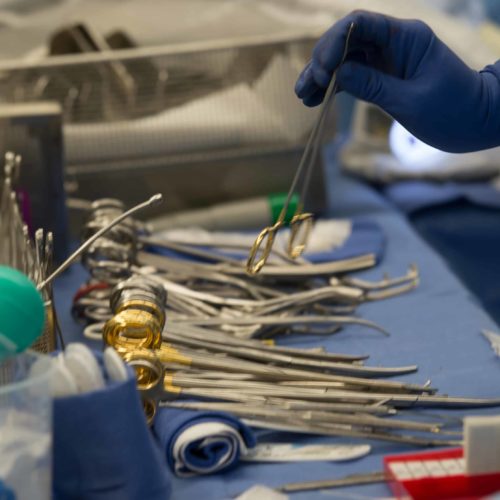Introduction
We’re continuing our series featuring journalists who have written powerful stories. Before the coronavirus outbreak, there were major flaws in the U.S. healthcare system, like the messy and inefficient process for organ transplants. Nearly 113,000 people waited for organ transplants. Astoundingly, organs sometimes went missing in transit.
Kasier Health News’s JoNel Aleccia partnered with Reveal and found that between 2014 and 2019, nearly 170 organs could not be transplanted and 370 endured “near misses.” The reason? The U.S. relies on a patchwork system of a limited number of nonprofits to transfer these lifesaving organs to patients across the country.
How did you get the story? What led you to report it?
I’ve written many stories about organ transplantation over the years and I’m always fascinated by all aspects of the industry. So when I heard about the human heart left on a Southwest Airlines flight in 2018, I was intrigued. It’s not part of my current beat at all, but I just started digging around to find out what the regulations were regarding organ shipments. I was stunned to discover that they weren’t really tracked — and that there wasn’t even a requirement for the type of GPS tracking you can use to tell where your Amazon order might be.
I looked deeper and found that there was a tiny subset of data kept by UNOS, the United Network for Organ Sharing. Editors discouraged the story, thinking I would only find problems with tracking blood and tissue, but my first pass through the data showed that dozens of whole organs failed to be transplanted after transportation errors. When I requested more data and found past reports from UNOS, those numbers grew. I built it out from there, asking former transplant sources to verify this was true. That led me to people within the industry who regarded this as an open secret and who were not only outraged, but willing to talk.
What were the challenges of reporting on this topic and how did you navigate them?
The biggest challenge in reporting this story was the whole reason it was a story: No one tracks transport of organs on commercial flights. Trying to prove that there was a problem when there was little data about the problem was really tough. Also difficult was the reality that neither the families of organ donors nor the recipients of the organs are told when an organ is delayed or lost because of a transportation error. So it was very difficult to find patients who had been harmed by this process — because they weren’t aware of the harm.
Another challenge was getting people who knew this was a problem to go on the record about it. There can be intense peer pressure in the transplant world not to criticize the system that provides life-saving organs for fear of discouraging donors. I navigated this by calling transplant surgeons all across the country, more than a dozen, until I found several willing to talk to me. I also trolled the public comments sections of UNOS boards, looking for people who discussed transportation problems. And when I finally found the director of an organ procurement organization who would talk, it turned out she’d nearly lost an organ on a commercial flight two weeks earlier.
Takeaway: You can still expose abuses of power with an industry’s open secret.
Read more in Inside Public Integrity
Watchdog Q&A
Q&A: Lance Williams details California’s loss of COVID-19 medical supplies
Inside Public Integrity
Two Center for Public Integrity projects win National Headliner Award honors
Immigration and governmental reporting cited among nation’s best


Join the conversation
Show Comments